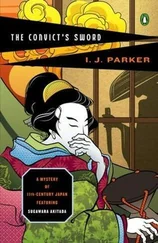I Parker - The Masuda Affair
Здесь есть возможность читать онлайн «I Parker - The Masuda Affair» весь текст электронной книги совершенно бесплатно (целиком полную версию без сокращений). В некоторых случаях можно слушать аудио, скачать через торрент в формате fb2 и присутствует краткое содержание. Жанр: Исторический детектив, на английском языке. Описание произведения, (предисловие) а так же отзывы посетителей доступны на портале библиотеки ЛибКат.
- Название:The Masuda Affair
- Автор:
- Жанр:
- Год:неизвестен
- ISBN:нет данных
- Рейтинг книги:3 / 5. Голосов: 1
-
Избранное:Добавить в избранное
- Отзывы:
-
Ваша оценка:
- 60
- 1
- 2
- 3
- 4
- 5
The Masuda Affair: краткое содержание, описание и аннотация
Предлагаем к чтению аннотацию, описание, краткое содержание или предисловие (зависит от того, что написал сам автор книги «The Masuda Affair»). Если вы не нашли необходимую информацию о книге — напишите в комментариях, мы постараемся отыскать её.
The Masuda Affair — читать онлайн бесплатно полную книгу (весь текст) целиком
Ниже представлен текст книги, разбитый по страницам. Система сохранения места последней прочитанной страницы, позволяет с удобством читать онлайн бесплатно книгу «The Masuda Affair», без необходимости каждый раз заново искать на чём Вы остановились. Поставьте закладку, и сможете в любой момент перейти на страницу, на которой закончили чтение.
Интервал:
Закладка:
He stopped people to ask if they knew the boy or his family, but eventually grew weary of the disclaimers and headed for an inn. The boy had looked around curiously, but given no sign of recognition. In the inn yard, Akitada lifted him from the saddle and, with a sigh, took the small hand in his as they entered the ‘Inn of Happy Returns’.
‘A room,’ Akitada told the innkeeper, slipping off the sodden straw cape and his wet boots and dropping them on the stone flags of the entrance hall. And a bath. Then some hot food and wine.’
The host was a stocky man with a dandified mustache above fleshy lips. He was staring at the ragged child. ‘Is he with you, sir?’
‘Unless you know where he lives, he’s with me,’ Akitada snapped irritably. ‘Oh, I suppose you’d better send someone out for new clothes for him. He looks to be about five.’ He fished silver from his sash, ignoring the stunned look on the man’s face.
After inspecting the room, he took the child to the bath.
Helping a small boy with his bath again was unexpectedly painful, and tears filled Akitada’s eyes. He blinked them away, blaming such emotion on fatigue and pity for the child. The shirt had done little to conceal his thinness, but naked he was a far more shocking sight. Not only was every bone clearly visible under the sun-darkened skin, but the protruding belly spoke of malnutrition, and there were bruises from beatings.
Judging by the state of his long, matted hair and his filthy feet and hands, the bath was a novel experience for him. Akitada borrowed scissors and a comb from the bath attendant and tended to his hair and nails, trying to be as gentle as he could. The boy submitted bravely to these ministrations and to a subsequent cleansing of his body with a bucket of warm water and a small bag filled with buckwheat hulls. Afterwards, while they were soaking in the large tub, as he had done so many times with Yori, Akitada fought tears again.
They returned to the room in short robes provided by the inn. The child’s was much too large for him and dragged behind as he walked, clutching Akitada’s hand. Their bedding had been spread out, and a hot meal of rice and vegetables awaited them. At the sight of the food, the boy smiled for the first time. They ate, and when the boy’s eyes began to close and the bowl slipped from his hands, Akitada tucked him into the bedding and went to sleep himself.
He awoke to the boy’s earnest scrutiny. In daylight and after the bath and night’s rest, the child looked almost handsome. His hair was soft, he had thick, straight brows, a well-shaped nose and good chin, and his eyes were almost as large and luminous as Yori’s. Akitada smiled and said, ‘Good morning.’
Stretching out a small hand, the boy tweaked Akitada’s nose gently and gave a little gurgle of laughter.
But there were no miracles. The boy did not find his speech or hearing, and his poor body had not filled out overnight. He still looked more like a hungry ghost than a child.
And he was not Yori.
Yet in that moment of intimacy Akitada decided that, for however long they would have each other’s company, he would surrender to emotions he had buried with the ashes of his first-born. He would be a father again.
Someone had brought in Akitada’s saddlebags and the boy’s new clothes. They dressed and went for a walk about town. Because of the holiday, the vendors were setting out their wares early in the market.
Near the Temple of the War God they breakfasted on noodles. Then Akitada had himself shaved by a barber, while the boy sat on the temple steps and watched an old storyteller, who was regaling a small group of children and their mothers with the tale of how the rabbit got into the moon. His face was expressionless. Akitada’s heart contracted with pity, and he looked away.
Beyond the busy market street, roofs of houses stretched towards the green hills: brown thatched roofs, grey wooden roofs weighted down with large stones, blue-tiled roofs of temples, and black-gabled pitched roofs of shrines. But, on the hillside behind the temple, a complex of elegantly curving tiled roofs rose above the trees and overlooked the town below and the lake and distant mountains beyond. Akitada idly asked the barber about its owner.
‘Oh, that would be the Masudas. Very rich, but cursed.’
‘Cursed?’
‘All the men die mysteriously.’ The barber finished and wiped Akitada’s face with a hot towel. ‘There’s only the old lord left now, and he’s mad. That family’s ruled by women. Pshaw!’ He spat in disgust.
Even without curses, there was no shortage of death in the world.
Akitada paid and they strolled on. The way the boy clung to his hand as they passed among the stands and vendors filled Akitada’s heart with half-forgotten gentleness. He watched the boy’s delight in the sights of the market and wondered where his parents were and if they were in despair by now. Perhaps they lived far away and had become separated from their son while traveling along the highway.
Or – a dreadful but reasonable thought – perhaps they had abandoned him in the forest because he was not perfect and a burden to them. The irony that this living child might have been discarded like so much garbage, while Yori, beloved and treasured by his parents, had been snatched away by death was not lost on Akitada, and he spoiled the silent boy with treats – a pair of red slippers for his bare feet, a carved horse to play with, and sweets.
No one recognized the child; neither did the boy show interest in anyone. Not even the odd figure of a mendicant monk, his entire head swallowed by a large basket hat made from straw, got more that a casual glance. The monk was playing a vertical flute with great skill, and Akitada, who played the horizontal flute, would have liked to linger a little, but the boy pulled him away to watch some acrobats tumbling in the street.
Only one odd thing happened later in the day. After having clung to Akitada’s hand all morning and afternoon, the boy suddenly tore himself loose and dashed into the crowd just as Akitada was thinking of taking him to a nice dinner in one of the restaurants.
He felt a sharp panic that he had lost him forever.
But the boy had not gone far. Akitada glimpsed his bright-red shoes between the legs of passers-by, and there he was, sitting in a doorway, clutching a filthy brown-and-white cat in his arms. Akitada’s relief was as instant as his irritation. The animal was thin, covered with dirt and scars, and looked half wild. When Akitada reached for it, it hissed and jumped from the boy’s arms.
The child gave a choking cry, too garbled to be called speech. He struggled in Akitada’s arms, sobbing and repeating the strangled sounds, his hands stretching after the cat. Akitada felt the wild heartbeat in the small chest against his own and soothed the sobs by murmuring softly to him. After a long time, the boy calmed down, but even after Akitada bought him a toy drum, he kept looking about for the stray cat.
They had a fine dinner of sea bream, melon pickle, rice, and sweet millet cakes with honey, and Akitada was happy that the boy ate well and with pleasure. When night fell, they followed the crowd back to the temple, where a stage had been set up for the O-bon dancers. The dancers, both men and women, wore brightly colored robes and gyrated in the light of colored lanterns to the music of a small orchestra of drums, lutes, and flutes. Akitada lifted the boy to his shoulders so he could see. His eyes were wide with wonder at the sight of the fearful masks and brilliant silk costumes. Once, when a great lion-headed creature came close, its glaring eyes and lolling tongue swinging their way, he gave a small cry and clasped Akitada’s neck.
For a moment the colorful scene blurred as Akitada felt the small arms and hands against his skin. It was shameful for a grown man to weep in public, and he brushed the tears away, knowing that he could not part with this child.
Читать дальшеИнтервал:
Закладка:
Похожие книги на «The Masuda Affair»
Представляем Вашему вниманию похожие книги на «The Masuda Affair» списком для выбора. Мы отобрали схожую по названию и смыслу литературу в надежде предоставить читателям больше вариантов отыскать новые, интересные, ещё непрочитанные произведения.
Обсуждение, отзывы о книге «The Masuda Affair» и просто собственные мнения читателей. Оставьте ваши комментарии, напишите, что Вы думаете о произведении, его смысле или главных героях. Укажите что конкретно понравилось, а что нет, и почему Вы так считаете.












